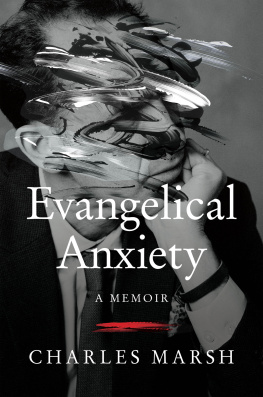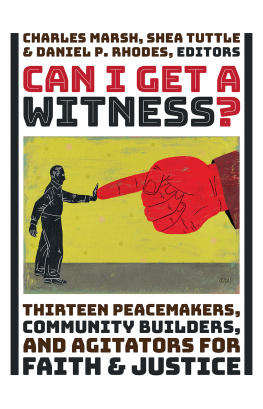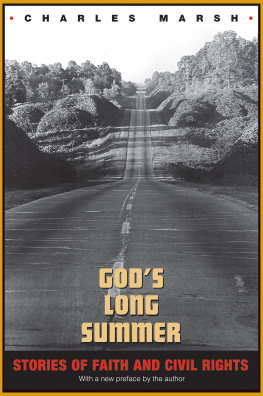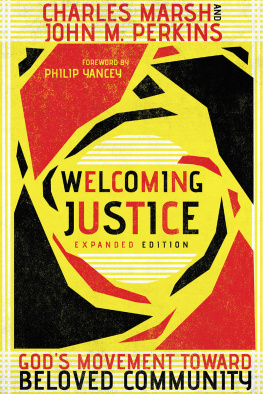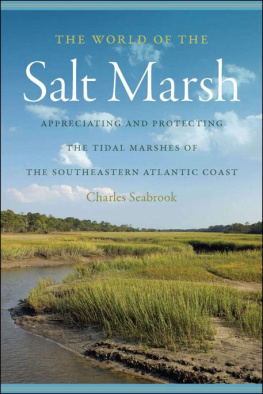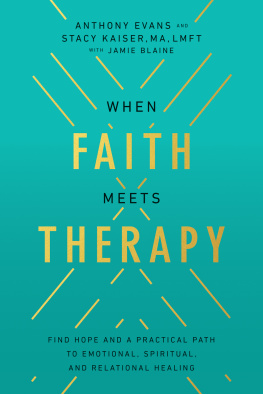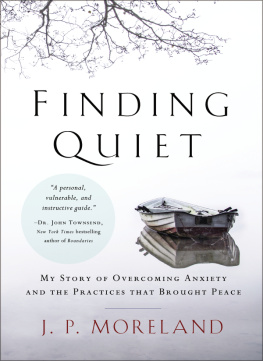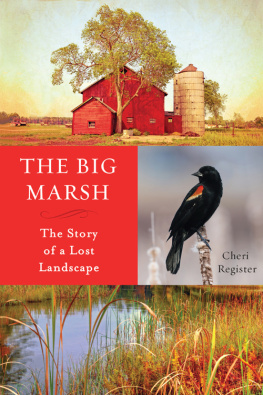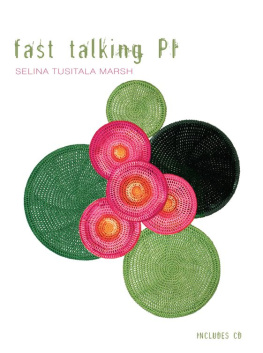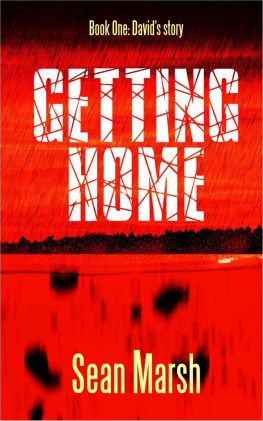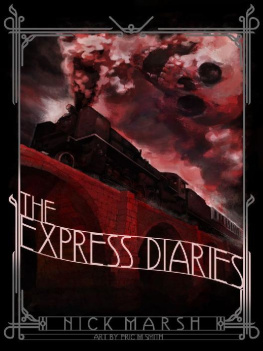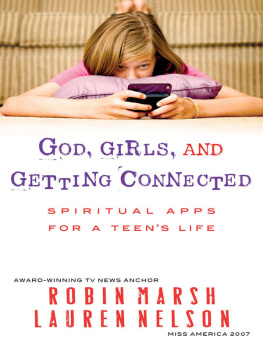Contents
Guide
For K
Maggie, you will be thrown into the world someday, and then every rational satisfaction of your nature that you deny now will assault you like a savage appetite.
George Eliot, The Mill on the Floss
Something has happened to me, I cant doubt it any more. It came as an illness does, not like an ordinary certainty, not like anything evident.... And now, its blossoming.
Jean-Paul Sartre, Nausea
Contents
S ometime after my family moved to Charlottesville, on a mild April evening, I sat in my accustomed pew beneath the Tiffany stained-glass window at a downtown church. The church had recently launched an evening service intended for students and seekers, with tasteful acoustic praise songs and a fellowship supper in the refectory afterward prepared by a local farm-to-table caterer.
That evening, I was treated to a sermon on the sixteenth-century German Reformer Martin Luther that included this pastoral word to the people: It is my hope and prayer that every person in this congregation suffer a complete nervous breakdown before they reach middle age. He may have said before their thirtieth birthday. I cant recall. I had recently rounded forty but didnt think of myself as middle-aged. Id only been teaching for a decade, free of doctoral studies and gainfully employed, and I could still run with the kids at North Ground gym in afternoon pick-up games.
The preacher, an amiable fellow a few years younger than me, had briskly approached the pulpit in crisp khaki trousers and a Vineyard Vines button-down and begun the homily by surmising that if Martin Luther had taken antidepressants to quell his violent mood swings and inner tormentI am like ripe shit, and the world is a gigantic asshole, Luther might bark outthe world would have never known a Protestant Reformation. Its great insightsjustification by faith alone, sola scriptura, and the priesthood of ordinary believerswould have been lost to recalibrated serotonin levels and steadier nerves.
It was a sermon I knew I would not soon forget; the gospel of the shattered self, where the anxiously ill submit graciously to the whip. By the time the priest concluded that our lives are not a journey, they are a train wreck, air-quoting journey to scattered laughter, I felt the old rumblings of dread begin their slow rise to a symptom.
The whisper-folk benediction be damned, I whisked my wife and children out the side exit and ricky-bobbed the minivan the two miles back to our house and there hurtled upstairs to my medicine bag, shook free a lorazepam, and placed the round white pill under the tongue. The body of Christ broken for you, I thought, waiting before the bathroom mirror for a direct hit to the blood and the Amen I needed most.
I want to talk now of an autumn evening in Cambridge, Massachusetts, near the end of the time when I lived so successfully disguised to myself as unaghast and free. It was an ordinary night during my first semester at Harvard Divinity School. I lay in bed in the low-ceilinged, overheated dorm room to which I had been assigned, when a panic overcame me so complete that from that moment on I could divide my life between all that had come before and everything that followed: twenty-three years, six months, and three days of coming to feel at home in my mind and body, changed in an instant.
I had set my oscillating fan to high and slipped into a shallow sleep. It was not unusual for me after an arousing day of study to spend an hour in bed, letting my mind roam free, resting in the silences.
The first sign that something was wrong came from a crackling sound in the drywall that separated my bed from the one in the next room, occupied by a visiting scholar from a midwestern college. I knew my neighbor already as one who also suffered from allergies and asthma. Hed been having a rough go of it lately; the buildings dust mites and allergens patrolled the hallways like prison guards. Its something wed talked about briefly, our shared miseries. My own inhaler remained at arms reach.
I clicked off the fan and sat up in bed. It was then that a high pandemonium ripped away everything protecting me from the world outside. I was no longer a person alone in his room. In an instant, I could hear all things inside my body in their deepest repercussions. My heart and its soft aortic murmur, my breaths every exhalation and inhalation, the downward silences, the laborious intakewould this one be the last? How much noise the body makes when amped up on fear! I could hear the hiss of molecules colliding. And outside in the yellow night, the compressors harrumphing atop the nearby physics building, the sound of car engines and slamming doors. All these things I heard as tormenting assault, a soundscape I could not mute. Id become a thought thinking about thinking itself and nothing else, metaphysics ancient curse. A cogitation cycling through every autonomous body function, placing on each a question mark like flowers for the dead.
I wrapped my arms around my chest. Something terrible was happening. A hyperawareness of all my body was doing to keep itself alive, each system clicking to attention like some deranged mental jukebox in which I had been taken hostage. I came to understand that the sound I heard was not the strange resonance of buildings at night or the result of my nerves addled by caffeine. I heard the sound of collapse. Imagine, if you can, the skid and shatter of the barrier that protects your body from your own imagination. Imagine knowing that your body is now a park that grows predatory at sundown, like the park where the dismembered bodies of three boys were found scattered around a fire pit; Id seen that on the television news one night when my parents were away.
I became overtaken by the harrowing notion that my body was short-circuiting, that I would soon stop breathing, and from now on every systole and diastole required voluntary operation. And I was certain that something further, deeper had changed, that some mystical unmaking had begun. What did I want in that moment? Only to quell the specter of needing consciously to operate my lungs and my heart. What did I feel? Only a totality of terror that I had never known before. I couldnt imagine a way out of the night.
* * *
On the first morning after the breakdown, I arose to a gray dawn metaling against the modular window. My late arrival to the seminar on The Problem of God was my symptoms debut in real timeit was my habit always to be present and alert when the bell rang. An angry Mennonite atheist taught the class. He spoke the way he wrote, in a wooden prose that bushhogged Christian orthodoxy to dust and ashes. And he expected his students to do the same. So in the weekly reflection papers you would see a lot of god and godself, because writing God and its attendant pronouns he or himself puts you on the side of the divine patriarch who castrates women. The only real referent for the word God is the idea we hold in our minds. The professor talked a lot about constructing the concept of God, but as far as I could see, he did not believe in the reality of God: God as being, transcendent, wholly other; God as triune; God as anything to which the Bible or creeds testified. He believed only in imaginative constructs.
That morning, in the seminar room we had been divided into groups of three and four, each assigned a doctrineincarnation, Trinity, atonementand tasked with recasting the Christian faith according to our tastes and preferences. Too late to join one, I labored in a solo effort over the practice of prayer. The professor, I intuited, would approve a form of speech that enabled you, when praying, to make present what is promised, the new creation, or something like that. Id taken the idea from a Christian anarchist and tried on this day, as on all others, to strike a generous tone. Maybe I came across as self-righteousI can assure you I felt the opposite. Id already pitched myself as a plucky believer willing to defend Christian truth claims, and I guess I hadnt been careful to follow the professors script.

